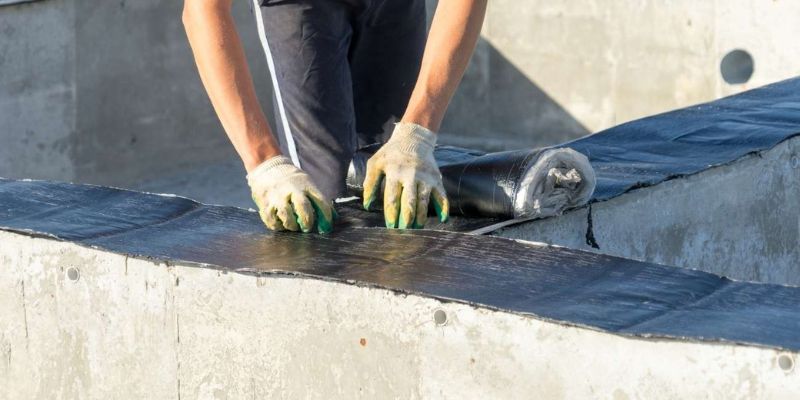Waterproofing is the most crucial step in your home-making. So to describe it in detail, we will delve into “How Long Does Waterproofing Last?” and will describe its longevity and the factors affecting it. Let’s dive in!
How Long Does Waterproofing Last?
The following are some important factors to keep in mind regarding the waterproofing’s lifespan:
Duration of Waterproofing:
- The typical life expectancy of waterproofing materials can differ contingent upon different elements, like the kind of material utilized and the ecological circumstances.
- High-quality waterproofing systems typically have a lifespan of 10 to 20 years.
- However, the lifespan of some specialized waterproofing solutions, such as those utilized in commercial or industrial settings, can extend to 25 to 30 years.
Durability-Affecting Factors:
- Exposure to UV radiation: Continuous exposure to the sun’s rays can deteriorate waterproofing materials over time.
- Temperature fluctuations: Extreme temperature changes can cause expansion and contraction, putting stress on the waterproofing layer.
- Moisture levels: Excessive moisture, especially in humid environments, can weaken the waterproofing system.
- Foot traffic and physical damage: Constant movement and impact can cause wear and tear on the waterproofing layer.
Maintenance and Upkeep:
- Regular maintenance is crucial to extend the lifespan of waterproofing.
- Inspecting the waterproofing system for any signs of damage, cracks, or deterioration is essential.
- Clearing debris, leaves, and dirt from the waterproofing surface helps prevent clogs and water pooling.
- Reapplying a protective sealant or coating periodically can enhance the longevity of the waterproofing system.
Material Selection:
- The choice of waterproofing materials plays a significant role in determining its lifespan.
- Some commonly used materials include bitumen, polyurethane, acrylics, and elastomeric coatings.
- Each material has its own durability and lifespan, so it’s essential to select the most suitable option for the specific application.
Professional Installation:
- Proper installation by trained professionals ensures the effectiveness and longevity of the waterproofing system.
- Hiring experienced contractors who follow industry best practices is crucial for achieving optimal results.
FAQs about Waterproofing Durability
-
Can I increase the lifespan of waterproofing?
Yes, there are several ways to extend the lifespan of waterproofing:
- Regular maintenance and inspections
- Promptly addressing any repairs or damages
- Applying protective sealants or coatings as recommended
- Avoiding excessive foot traffic or heavy loads on the waterproofed area
-
What are the signs of waterproofing deterioration?
Look out for the following signs:
- Cracks or fissures in the waterproofing layer
- Water leaks or seepage
- Mold or mildew growth
- Peeling or bubbling of the surface
- Discoloration or stains on the walls or ceiling
-
Is it possible to repair damaged waterproofing?
- Yes, minor damages can often be repaired without replacing the entire waterproofing system.
- Consult a professional to assess the extent of the damage and recommend suitable repair solutions.
-
Are there waterproofing options with longer lifespans?
Yes, certain advanced waterproofing technologies, such as liquid-applied membranes or reinforced systems, offer extended durability and can last longer than traditional solutions.
-
Does the warranty period indicate the actual lifespan of waterproofing?
- The warranty period provided by the manufacturer or installer is not necessarily the same as the actual lifespan of the waterproofing system.
- The warranty typically covers defects in materials or workmanship, but it does not guarantee the system’s performance or longevity.
-
Can I waterproof my property myself?
While some minor waterproofing tasks can be done by homeowners, it is generally recommended to hire professionals for proper installation, especially for larger projects or complex structures.
Conclusion
In summary, the lifespan of waterproofing depends on various factors such as the type of material, environmental conditions, maintenance, and quality of installation. On average, waterproofing can last between 10 to 20 years, but specialized systems can endure for up to 30 years.
Regular maintenance, selecting the right materials, and professional installation can significantly contribute to extending the lifespan of waterproofing. Remember to keep an eye out for signs of damage and address repairs promptly to ensure the ongoing protection of your property.


The depth in this serving is exceptional.